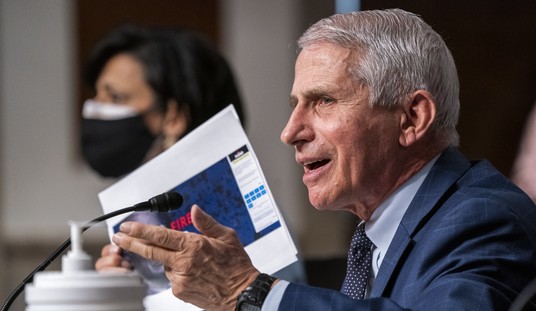I missed this Wall Street Journal article from Wednesday, but Tom Elia didn’t. Just two years after the implosion of easy credit nearly cratered the entire Western financial structure, the same people who caused it are returning to their old habits. Fannie Mae has embarked on a new program to offer easy credit to people who may not be able to pay it back in a desperate attempt to ignite the economy:
Fannie Mae, seized by the U.S. government in 2008 to avert the mortgage company’s failure, launched an initiative in January that allows some first-time home buyers to get a loan with a down payment of as little as $1,000. Securities firm Morgan Stanley Smith Barney, a brokerage operation jointly owned by Morgan Stanley and Citigroup Inc., is offering some clients home-equity credit lines of as much as $2.5 million.
Credit-card issuers mailed 84.8 million offers of plastic to U.S. subprime borrowers in the first six months of this year, up from 43.7 million a year earlier, estimates research firm Synovate. Nearly 8% of loans for new cars in the latest quarter went to borrowers with the lowest range of credit scores, up from 6.2% in 2009’s fourth quarter, according to J.D. Power & Associates and Fair Isaac Corp. …
Shirley Davis, a 66-year-old retired phone-company administrator who lives in Brooklyn, N.Y., is more than $33,000 in debt, earns just $2,414 a month and filed for bankruptcy in June. Shortly before that, she ripped open an envelope from Capital One Financial Corp., which pitched her a credit card even though it sued her in 2006 to recover $4,470 she owed on a different card from the bank.
“At some point we lost you as a customer and we’d like to have you back,” the letter said. Ms. Davis said she was stunned. “Even I wouldn’t give me a credit card at this point,” she said.
Be sure to watch the video, as it provides some good context. The amount of risk may still be within acceptable ranges, but with unemployment going up and assets in home ownership declining, this seems like a bad call.
It’s especially bad for Fannie Mae. After all, a private lender will have to pay the price for bad decisions — oh, excuse me, that’s not entirely true any more, is it? With Congress passing the financial regulation bill, the federal government now has a regulatory lever to seize private firms and put us all on the hook, just as Congress and two White Houses did with TARP.
However, Fannie Mae is in the middle of a rescue already, and costing taxpayers over $200 billion for it in combination with its sibling GSE, Freddie Mac. It has no business offering $1000-down loans until it cleans up the huge mess left over from its previous subsidizing of bad subprime loans. Want to guess whether they’re securitizing this paper in mortgage-based securities?









Join the conversation as a VIP Member